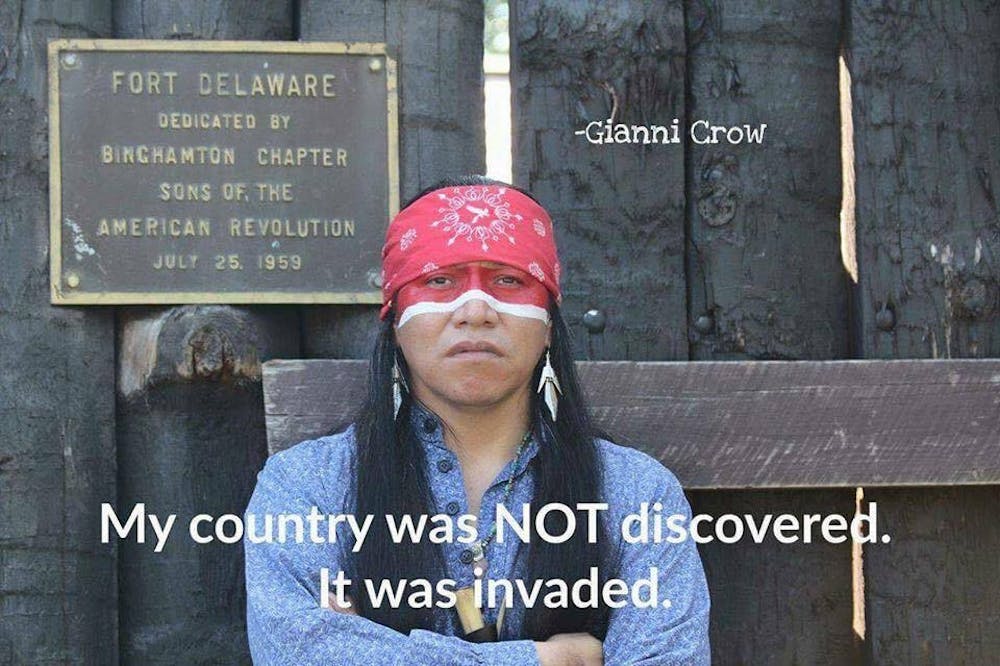Instead of celebrating Christopher Columbus, some cities across the U.S. are beginning to celebrate the people he encountered, instead.
Every year on the second Monday of October, millions of Americans celebrate the man who discovered America some 500 years ago on Columbus Day. However, in recent years, lawmakers have seen a huge push to rename the holiday to Indigenous People’s Day, which aims to celebrate those who already inhabited the land before European settlers came along.
Many cities are currently seeing a push to make Indigenous People’s Day official, and so far, the renamed day is already celebrated in many U.S. cities, including Cincinnati, Denver, Phoenix, Minneapolis and Seattle. Columbus Day is currently not celebrated in the states of Alaska, Hawaii, Oregon or South Dakota, with the latter officially celebrating Native American Day instead.
Daniel Ingram, a Ball State history professor, said the holiday was created in the early 20th century during a time when people had "very different ideas" about race relations, human progress and American nationalism.
“Holidays of this sort are made to celebrate historical people and events, but are also the products of their own times," Ingram said. "One hundred years ago, a holiday honoring the European 'discovery' of America made sense to a wider cross-section of Americans, who found it easier to ignore the complaints of their own indigenous population.”
The Indiana American Indian Council, a non-profit organization dedicated to keeping native ways alive, said in a press release that Columbus was lost, and his "discovery of the Americas" is not a valid historical event to be celebrated, nor are his contributions to the "genocide of indigenous peoples."
The council instead believes that recognizing native peoples, their cultures and their history is a more respectful and appropriate approach to celebrating the past.
Although Indiana will commemorate Columbus Day on Oct. 10, some students find the holiday to be inappropriate.
"I know I won't be celebrating that so-called holiday," freshman history major Tom Wheeler said. "I know the true atrocities Columbus committed, and I hope others can respect the decision not to celebrate or honor the day in the [traditional] way."
Wheeler, who said he has family living on the Osage Reservation in Oklahoma, has been passionate against Columbus Day for some years. Although there isn't as big of a push for Indigenous People's Day in Indiana, Wheeler said he thinks a general push for more education about native people before Columbus' arrival would be beneficial.
"Columbus didn't discover anyone – all of those people were already here, they knew they were here," Wheeler said. "But we aren't really taught about the true Columbus in school. It would be hard to change the narrative we give to such a prominent historical figure, but if we could at least give one day a year to the people who's ancestors were here to the true history of the Americas, that would be a step in the right direction."





